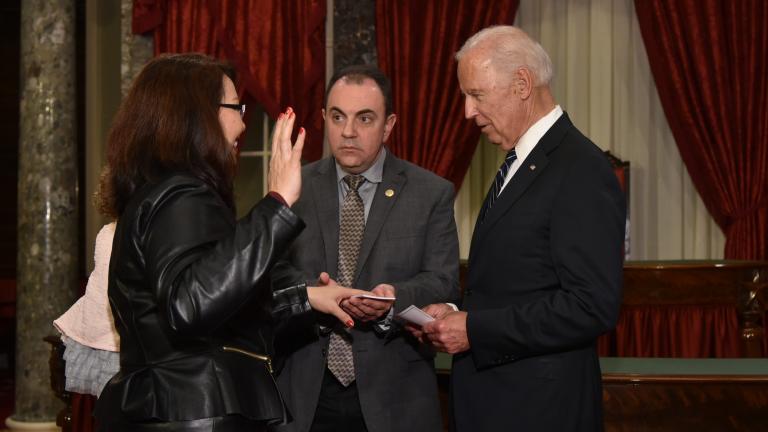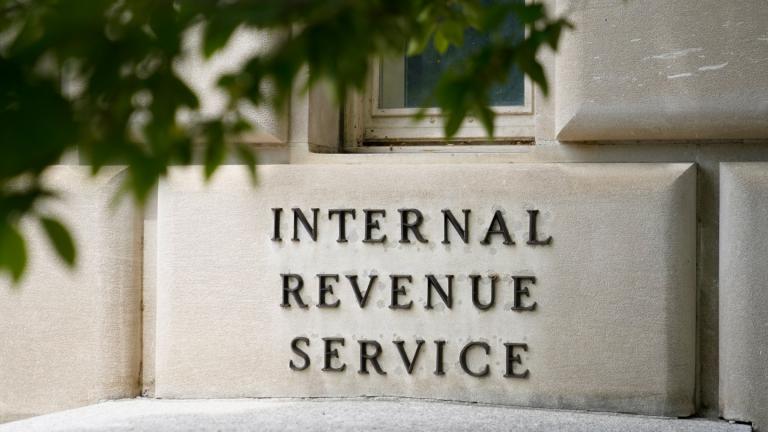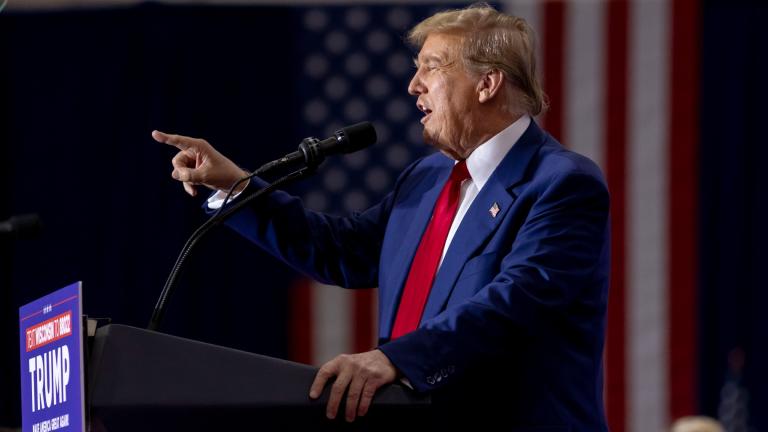Just hours after taking the oath of office, President Donald Trump delivered on a campaign promise and began the process of dismantling Obamacare. In an executive order issued on Friday, the president gave government agencies the option of not enforcing any aspect of the law that might “impose a fiscal burden on any state or a cost, fee, tax, penalty, or regulatory burden on individuals, families, healthcare providers, health insurers, patients” and others.
As Congress begins its own process of repealing and replacing the Affordable Care Act, this executive order is thought to be a serious blow, especially in the way it will ease – or even, effectively, abolish – the individual mandate that was a key component of the health care law.
Phil Ponce discusses the implications of Trump’s executive order with Anthony LoSasso, professor of health policy and administration at the University of Illinois at Chicago, who is a longtime critic of the ACA; Daniel Rabbitt, a project manager for health policy for the Heartland Alliance, a progressive anti-poverty organization; and Jim Warren, chief media writer for the Poynter Institute and Vanity Fair, and national political columnist for U.S. News and World Report.
Below, the full text of the executive order.
![]()
Executive Order Minimizing the Economic Burden of the Patient Protection and Affordable Care Act Pending Repeal
EXECUTIVE ORDER
MINIMIZING THE ECONOMIC BURDEN OF THE PATIENT PROTECTION AND AFFORDABLE CARE ACT PENDING REPEAL
By the authority vested in me as President by the Constitution and the laws of the United States of America, it is hereby ordered as follows:
Section 1. It is the policy of my Administration to seek the prompt repeal of the Patient Protection and Affordable Care Act (Public Law 111-148), as amended (the "Act"). In the meantime, pending such repeal, it is imperative for the executive branch to ensure that the law is being efficiently implemented, take all actions consistent with law to minimize the unwarranted economic and regulatory burdens of the Act, and prepare to afford the States more flexibility and control to create a more free and open healthcare market.
Sec. 2. To the maximum extent permitted by law, the Secretary of Health and Human Services (Secretary) and the heads of all other executive departments and agencies (agencies) with authorities and responsibilities under the Act shall exercise all authority and discretion available to them to waive, defer, grant exemptions from, or delay the implementation of any provision or requirement of the Act that would impose a fiscal burden on any State or a cost, fee, tax, penalty, or regulatory burden on individuals, families, healthcare providers, health insurers, patients, recipients of healthcare services, purchasers of health insurance, or makers of medical devices, products, or medications.
Sec. 3. To the maximum extent permitted by law, the Secretary and the heads of all other executive departments and agencies with authorities and responsibilities under the Act, shall exercise all authority and discretion available to them to provide greater flexibility to States and cooperate with them in implementing healthcare programs.
Sec. 4. To the maximum extent permitted by law, the head of each department or agency with responsibilities relating to healthcare or health insurance shall encourage the development of a free and open market in interstate commerce for the offering of healthcare services and health insurance, with the goal of achieving and preserving maximum options for patients and consumers.
Sec. 5. To the extent that carrying out the directives in this order would require revision of regulations issued through notice-and-comment rulemaking, the heads of agencies shall comply with the Administrative Procedure Act and other applicable statutes in considering or promulgating such regulatory revisions.
Sec. 6. (a) Nothing in this order shall be construed to impair or otherwise affect:
(i) the authority granted by law to an executive department or agency, or the head thereof; or
(ii) the functions of the Director of the Office of Management and Budget relating to budgetary, administrative, or legislative proposals.
(b) This order shall be implemented consistent with applicable law and subject to the availability of appropriations.
(c) This order is not intended to, and does not, create any right or benefit, substantive or procedural, enforceable at law or in equity by any party against the United States, its departments, agencies, or entities, its officers, employees, or agents, or any other person.
DONALD J. TRUMP
THE WHITE HOUSE,
January 20, 2017.
Related stories:
 What Obamacare Repeal Could Mean to Patients of Cook County Hospitals
What Obamacare Repeal Could Mean to Patients of Cook County Hospitals
Jan. 5: What will 300,000 local patients face if Obamacare is repealed? We speak with the CEO of the Cook County Health and Hospitals System.
 Illinois Delegation Split on Repeal of Obamacare
Illinois Delegation Split on Repeal of Obamacare
Jan. 3: On Tuesday, the 115th Congress was sworn in, including new members from the Illinois delegation. Up next, according to congressional leaders, is the repeal of the Affordable Care Act. How will that work, and will the Democratic Party aim to block it?
 What’s Ahead for the Affordable Care Act?
What’s Ahead for the Affordable Care Act?
Nov. 15: On the campaign trail, Donald Trump spoke often about immediately repealing the Affordable Care Act. Now, as president-elect, he appears to be changing his plan. A look at what might be ahead for Obamacare.








